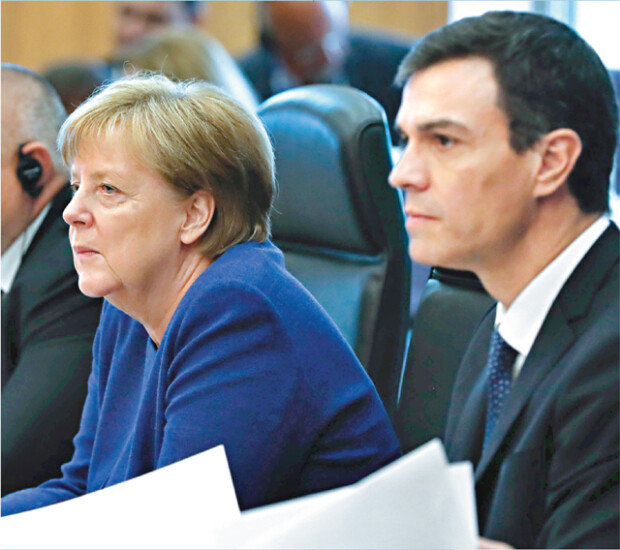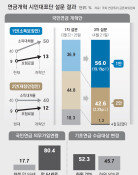EU’s migrant issue puts Schengen at stake
EU’s migrant issue puts Schengen at stake
Posted June. 26, 2018 08:01,
Updated June. 26, 2018 08:01

“Who arrives in Italy, lands in Europe. We must reaffirm responsibility and solidarity,” said Italian Prime Minister Giuseppe Conte at Sunday’s informal summit attended by 16 leaders of EU countries to discuss the issue of migration. He also warned that the migrant crisis has put the Schengen Area (European countries that do not have any restrictions for tourists travelling) at risk. Italy, along with Greece, is a country in which refugees who have travelled across the Mediterranean Sea first arrive. This is why Conte, at the mini-summit, publicly warned that the crisis could spell the end of free movement in Europe if other EU members turn a blind eye to the challenges faced by Italy and Greece.
“If we don’t have a genuine solution on the migration issue, then Schengen is dead,” said a diplomatic source to the Guardian Sunday, implying that the refugee crisis is shaking up the foundation of the EU integration.
Paradoxically, Germany, which has been leading the EU integration, has contributed to the current situation. The country's Federal Minister of the Interior Horst Seehofer, who serves as the leader of the Christian Social Union that is in alliance with Chancellor Angela Merkel’s Christian Democratic Union, is pushing ahead with a plan to block migrants from streaming through other countries. Though Merkel put on the brakes by stressing that Germany’s introduction of such measures will be followed by other EU members, resulting in a failure of Schengen, Seehofer issued Merkel an ultimatum by July 1 to find a solution to the issue.
Italy and Greece, situated along the Mediterranean Sea, are strongly opposing the idea of preventing the second movement within Europe. Conte called for the shift of a current paradigm that a country which first accepts migrants should be responsible for them, saying that the second movement cannot be the topic of discussion as the first movement is currently the most serious issue. “Each state establishes entry quotas for economic migrants. Adequate countermeasures must be provided for funding with respect to states that do not offer welcome to refugees,” he said.
This plan, however, is being opposed by East European countries, which are against the idea of having to accept migrants based on responsibility and solidarity itself. Visegrad Four (V4) countries - namely Poland, Hungary, the Czech Republic and Slovakia - had boycotted the mini-summit Sunday.
The European Union is seeking solutions such as building a center outside the Europe to separately handle application procedures and strengthening forces at borders, but with countries being poles apart on the issue, it is not likely to be easy for them to reach an agreement at Thursday’s EU summit.
Jung-Min Dong ditto@donga.com







